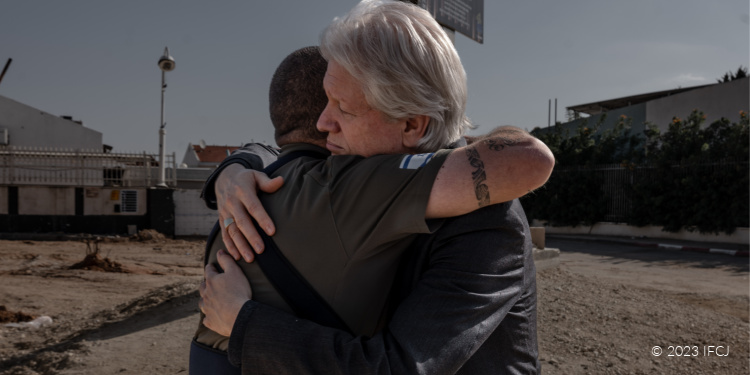Reconciliation and Forgiveness
Yael Eckstein | May 8, 2024

…because on this day atonement will be made for you, to cleanse you. Then, before the LORD, you will be clean from all your sins. —Leviticus 16:30
Each week in synagogue, Jews read through the Torah from Genesis to Deuteronomy. The Torah portion for this week is Acharei Mot, which means death, from Leviticus 16:1—18:30.
Have you ever needed to apologize and make amends for something that you did? It can be a very uncomfortable position to be in. Asking forgiveness from someone who we may have offended is awkward, especially when we don’t know how the person we offended will react.
I remember one time when I was in my teens, my father overheard me saying something negative about another girl at my school. My father stopped me mid-sentence. “Yael,” he said, “you are going to pick up the phone right now and call her to apologize and ask forgiveness.”
I was horrified. How would I tell this girl that I spoke ill of her? As a teen, the awkwardness was almost too much to bear. But you know what? I did it, and it actually went really well. In fact, this extremely uncomfortable episode led to a real and lasting friendship between the two of us that I never would have thought possible.
There is a Jewish custom to spend the month leading up to Yom Kippur, the Day of Atonement, reaching out to people who we may have offended in order to seek reconciliation and forgiveness.
Reconciliation and Forgiveness
This custom is based on an important principle that the rabbis derived from our verse in this week’s Torah portion describing the Day of Atonement: “because on this day atonement will be made for you, to cleanse you. Then, before the LORD, you will be clean from all your sins.”
Rabbi Elazar ben Azarya, one of the sages at the end of the Second Temple period, highlighted the words “before the LORD” at the end of this verse. He explained that the Day of Atonement service atoned only for those sins that were committed “before the LORD”—in other words, sins that are between us and God.
But, he explained, those sins that we committed against other people are not cleansed by the Day of Atonement. For these sins, we must seek forgiveness from the person who we offended. Only after we’ve reconciled with the person we have wronged does God fully forgive us, too.
For many people, seeking forgiveness from God is easier than setting things right with another person. But we must know that God wants us to reconcile; He wants peace among His children.
Let’s have the courage to seek reconciliation and forgiveness from one another, knowing that God will be pleased!
Your Turn:
Is there someone with whom you need to make amends? Ask God for the strength to reach out to them today.
